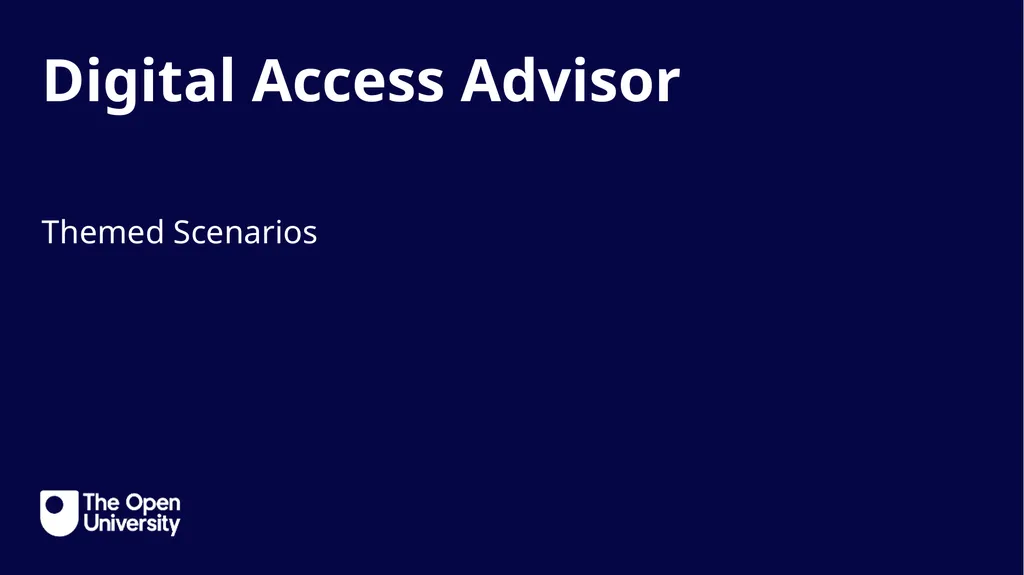
Author : debby-jeon | Published Date : 2025-05-16
Description: Digital Access Advisor Themed Scenarios Transitions and Lifelong Learning: Scenario 1 After working intermittent jobs for five years, Tamara is exploring options for further study. As a starting point, shes decided to take lots of freeDownload Presentation The PPT/PDF document "" is the property of its rightful owner. Permission is granted to download and print the materials on this website for personal, non-commercial use only, and to display it on your personal computer provided you do not modify the materials and that you retain all copyright notices contained in the materials. By downloading content from our website, you accept the terms of this agreement.
Here is the link to download the presentation.
"Digital Access Advisor Themed Scenarios"The content belongs to its owner. You may download and print it for personal use, without modification, and keep all copyright notices. By downloading, you agree to these terms.













